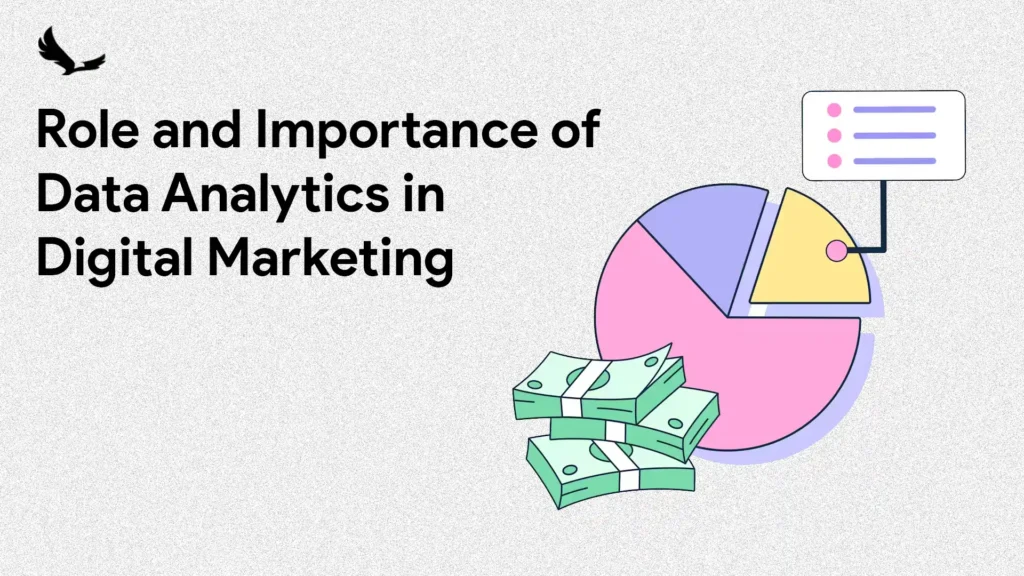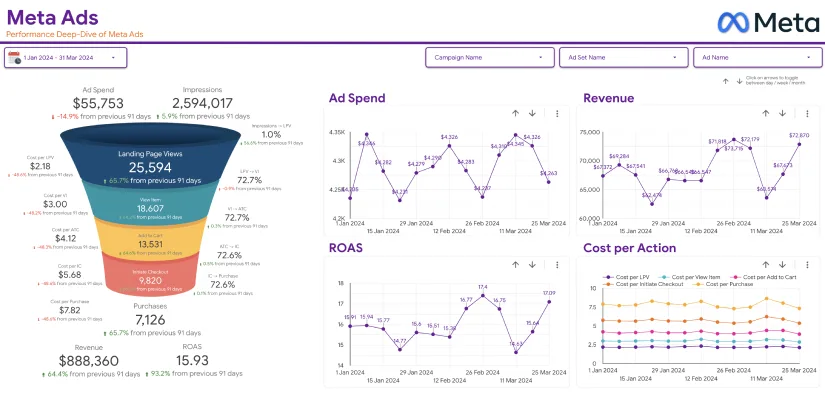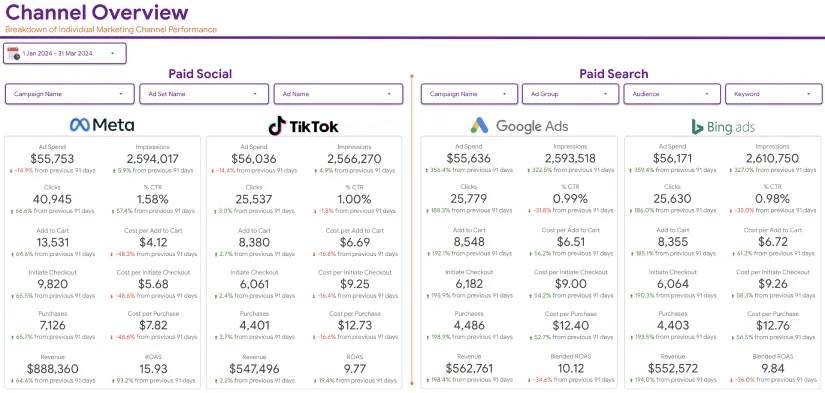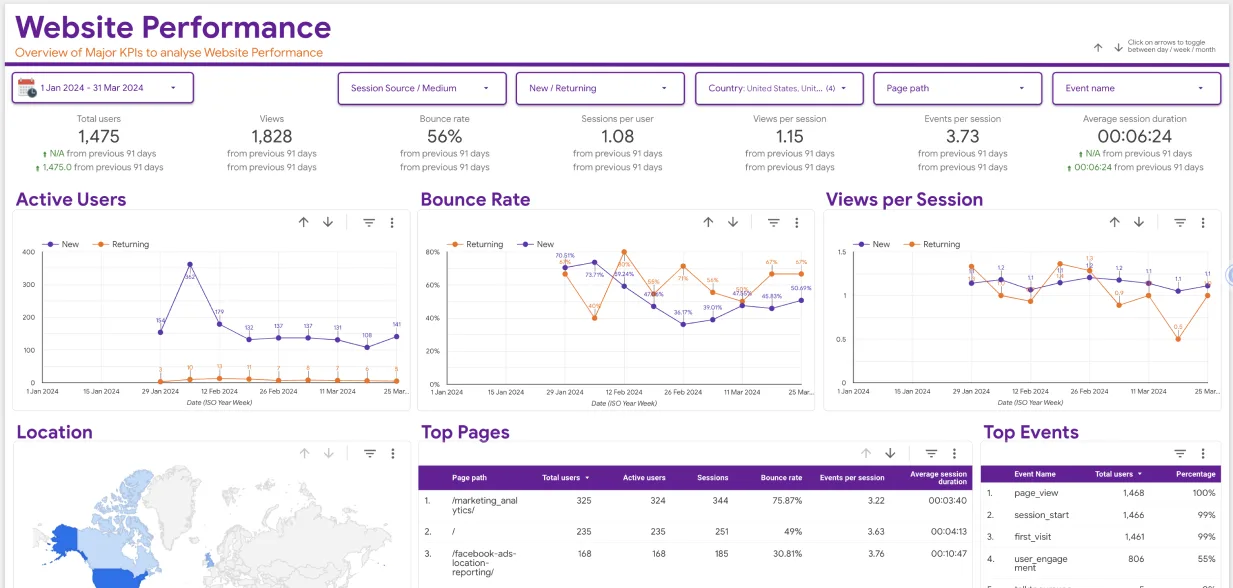As a key component of contemporary digital marketing techniques, content marketing permits brands to tap their target markets, increase the traffic of their websites, and create authority. But for content marketing efficiency to be elevated, marketers need to learn how to apply sophisticated reporting instruments. In this article, we will examine the best reporting tools for content marketing, their advantages, and ways for utilizing these tools to assess the performance of the content marketing strategy.
The Significance of Content Marketing Reporting Tools
Some of the reasons content marketing reporting tools are important include the following:
- Performance Measurement: They empower marketers to assess the success of their content concerning traffic, engagement, conversions, as well as other key performance indicators (KPIs).
- Data Visualization: Effective tools for reporting also give the user an insight into the data in question, hence making it even easier and more effective for the user to look at such data in its graphical forms.
- Content Optimization: Performance data helps marketers in realizing the kinds of content that are appreciated by the target audience and this helps in developing future strategies.
- Competitive Analysis: Some tools provide data that help the business understand the content marketing tools of competing companies for the improvement of their strategies.
- Time Efficiency: The integration of these features in reporting helps to automate most of the reporting tasks which frees the marketers and allows them to concentrate on creating content and formulating strategies instead of collecting data.
Key features to consider
- Integration Capabilities: Evaluate whether the tool can work with existing content management systems, social media, and analytics tools.
- Customizable Dashboards: Find systems that incorporate user-friendly dashboards customizable to specific metrics and performance indicators.
- Automated Reporting: The introduction of automated reports can be able to save on time constraints and allow regular monitoring of performance.
- Advanced Analytics: Advanced features such as predictive analysis can also give a better understanding of how the content will perform.
- User-Friendly Interface: A clean and easy-to-navigate interface will improve the use of the application and minimize the time to learn how to use it.
The Most Effective Tools for Reporting on Content Marketing
Let’s examine some of the well-known tools for reporting content marketing results in detail.
Google Analytics
Google Analytics is one of the major analytics services available today. Apart from helping track website traffic and users, this tool also aims at understanding how users behave on the site.
Key Features
- Traffic Analysis: Understand who is coming from where and what they are doing with your content.
- Goal Setting: Create objectives that allow you to evaluate the effectiveness of your content marketing strategy in bringing conversions.
- Event Tracking: Look into specific user actions, for instance, the number of times readers clicked on a call to action or played a video.
- Custom Reports: Formulate appropriate metrics that are significant to your strategy and develop relevant reports.
Pros
One of the key advantages of using Google Analytics is that this tool is low-cost and allows an extensive analysis of the user interactions with the content. The possibility to use other services provided by Google is also important for content marketers due to the high importance of this service.
Cons
Despite being a highly useful program, the number of resources available can be daunting for beginners as it often is advanced learning.
SEMrush
SEMrush is well-known as an extensive tool for all academic domains of digital marketing including SEO, PPC, and Content marketing.
Key Features
Content Analyzer: Assess the effectiveness of particular content pieces on several dimensions such as social shares and number of backlinks.
- Keyword Research: Obtain a list of keywords that can deliver high performance and also monitor their status.
- Competitor Analysis: Obtain an understanding of competitors’ content strategies and the key performing words used by them.
- SEO Writing Assistant: Content optimization suggestions for search engines are given as the writing activities continue.
Pros
With SEMrush, one can do much more than just search engine optimization; therefore, content marketers who want to enhance SEO and content capability need not look further.
Cons
For small firms, the costs can be high, and the wide range of features available can take some time to learn in full.
HubSpot Marketing Hub
HubSpot is a unified marketing solution that allows users to implement a content marketing strategy along with other marketing strategies.
Benefits
- Content Strategy Tool: It allows you to organize and improve your content strategy concerning topic clusters and SEO.
- Performance Analytics: Monitor the performance of blogs, landing pages, and other written works.
- Social Media Monitoring: Evaluate the performance of your content on various social media platforms.
- Lead Generation Tools: Embed forms and CTAs so that the role of content in lead generation can be assessed.
Advantages
The cohesive strategy of HubSpot allows advertisers to execute content marketing from beginning to end in one platform which helps in giving a good performance view.
Disadvantages
The tool might be expensive which is a challenge for small companies in particular, and it could be more than what is needed by those who are simply seeking content reporting tools.
BuzzSumo
BuzzSumo is a content research and performance analysis tool that is targeted at social media interactions.
Key Features
- Content Discovery: able to Find out the current trending topics and the best content within that niche here.
- Social Media Monitoring: Evaluate how effective the content is across different social media channels.
- Backlink Analysis: Study links directed to the content to assess the level of authority and influence commanded by that content.
- Identifying Experts: Find out subject matter experts in your niche to help promote your content.
Pros
BuzzSumo is particularly useful for marketers in understanding what content works best in their field and how their audience may be engaged.
Cons
The tool provides useful information but its limitation is that it is heavily social media-oriented which is not useful for brands that use other content channels more.
CoSchedule
CoSchedule is a robust marketing management solution that enables teams to prepare, publish, and evaluate content with efficiency.
Advantages
- Content Calendar: Create a timeline and organize content across various platforms.
- Analytics Dashboard: Evaluate the performance of each content piece in terms of traffic, shares, and other metrics.
- Social Media Automation: Schedule posts automatically and enhance the marketing scope of the content.
- SEO and Headline Analyzer: Tips on how to improve SEO and write captivating headlines will be provided.
Pros
Due to the emphasis on scheduling and strategizing, CoSchedule is a perfect fit for content teams that wish to simplify their workflow.
Disadvantages
Although the tool has helpful aspects, it may not be as powerful in statistics as other reporting-oriented devices.
Sprout Social
Sprout Social is an interactive social media management software, which also offers analytics of the performance of the content created.
Key Features
- Social Media Reporting: Monitor impressions, engagement, and other metrics across multiple social media networks.
- Content Planning: Create campaigns and schedule social media posts as part of a larger content strategy.
- Audience Insights: Understand the demographic and engagement characteristics of an audience.
- Competitor Analysis: Evaluate the social media performance and strategies of its rivals.
Pros
Social networks are getting more and more widespread in the market, and therefore, Sprout Social works well for brands in which social media involvement plays a major part in the content marketing strategy as it offers an in-depth analysis of the engagement.
Cons
The cost can be a disadvantage to smaller companies, and certain users might consider the analytics less complete for content that is not social.
ContentCal
ContentCal is a content planning and coordination platform that is aimed at improving the efficiency of content marketing processes.
Key Features
- Calendar: A timeline view of your content schedule that can help you coordinate several channels easily.
- Performance Analysis: Evaluating the effectiveness of the Designed assets on different channels.
- Collaboration: Allow teamwork among team members concerning approvals and comments.
- Unlike other services, you do not have to leave this one to schedule or publish your social media posts.
Benefits
ContentCal is good at team collaboration and properly organizing duties. Therefore, it suits most content marketers.
Drawbacks
The analytical tools provided may offer less functionality compared to tools that are purely for reporting purposes.
Google Data Studio
Google Data Studio is a no-cost tool for reporting that offers the benefit of building personalized dashboards and reports.
Key Features
- Data Source: Ingests data from several sources such as Google Analytics, Google Ads, and social networks.
- Personalized Dashboards: Develop KPIs dashboards and other informative boards as per requests.
- Teamwork: Allows reporting to be done and shared with other group members and stakeholders for instant access.
- Graphics: Provides users with various ways in which the available data can be presented.
Pros
Google Data Studio is a cost-free solution for marketers who wish to generate personalized reports, making it an admirable tool for organizations of all sizes.
Cons
It helps in making many reports very quickly but there are different levels, hence for those who are not well-versed in data visualization, this may come out as difficult as the concepts have a steep learning curve.
Moz Pro
Although Moz Pro is marketed mainly as an SEO instrument, it is also useful for aiding content marketing.
Key Features
- Position Monitoring: Keep an eye on changes in keyword positions and visibility over time. Onpage Improvement: Find out what to do to enhance the content as per the best-known SEO practices.
- Site Inspections: Conduct site inspections to find out any problems that are hindering the content from performing well.
- SEO Content Strategies of Rivals: Study the SEO and content strategies of the rival company.
Pros
Moz Pro is suitable for most content marketers as it enables them to improve their SEO strategies and also measure the results of the content.
Cons
The SEO-oriented nature of the tool might make it less effective for content marketers whose primary focus isn’t search engine optimization.
ClickUp
ClickUp is an all-in-one project management platform that encompasses content management as well as team activity reporting aspects.
Capabilities
- Task management: Simplistic way of organizing and controlling content tasks within the team.
- Custom Dashboards: Build custom dashboards to enable monitoring of content activity progress together with the content project.
- Integrations: All 3rd party applications and tools for data centralization.
- Time Tracking: Report on time spent on content tasks to maximize efficiency.
Advantages
ClickUp particularly comes in handy for a team that is in search of all-inclusive project management as well as content marketing project analytics tools.
Disadvantages
The range of tools available may be too complex for a user seeking a simple reporting application.
Conclusion
Effective content marketing reporting tools are indispensable when it comes to assessing the effectiveness of your content investment and improving your strategy. Every tool explained in the article has its advantages, suited to the specific needs and objectives of the business.
With the help of the above-mentioned tools, marketers can assess the performance of their content, make strategic corrections, and enhance the results. The right reporting tools will greatly improve the efficiency of your content marketing, enabling you to remain relevant in the ever-contested online space.





